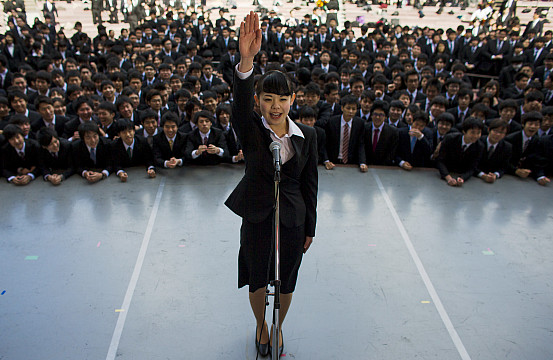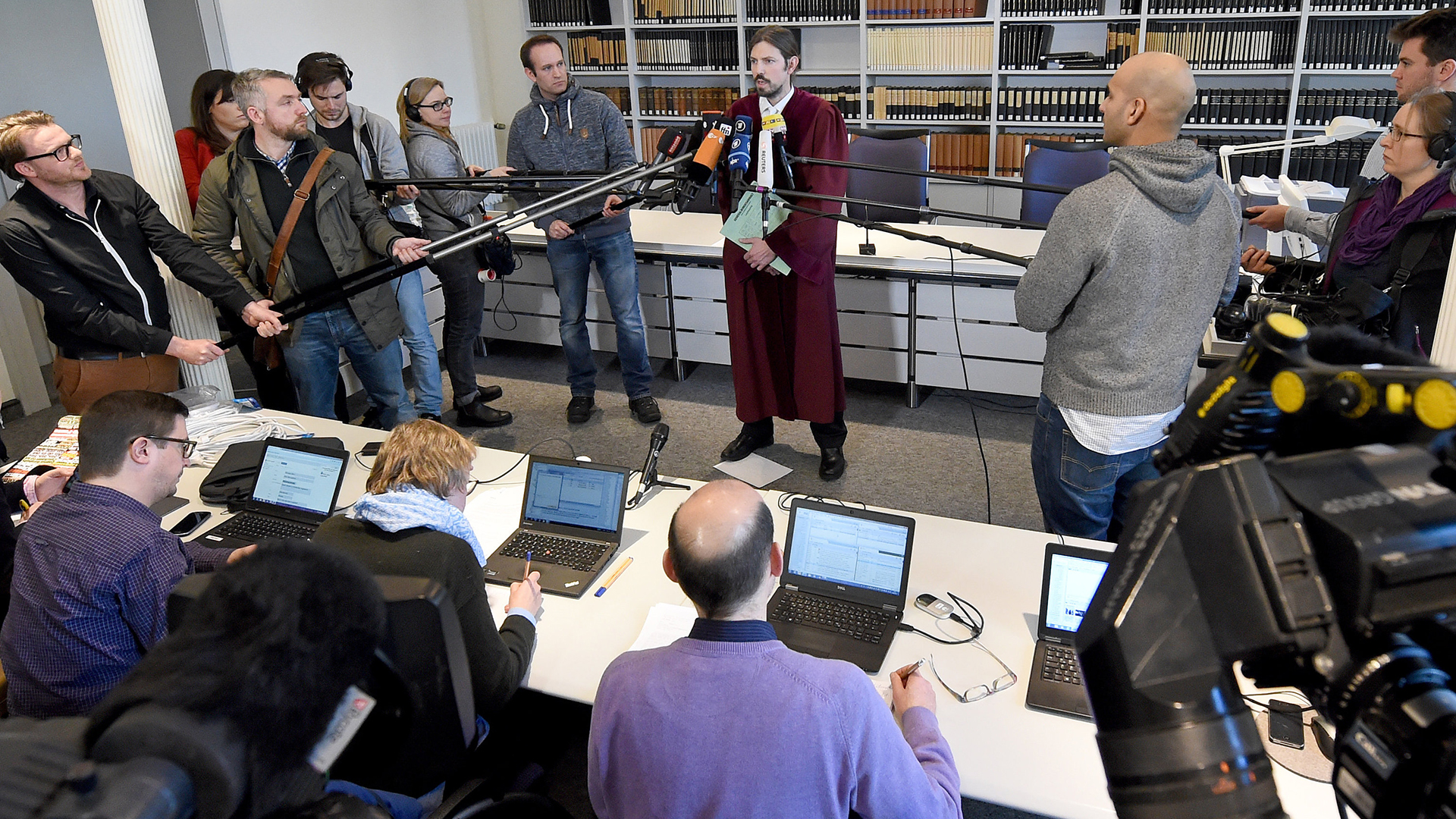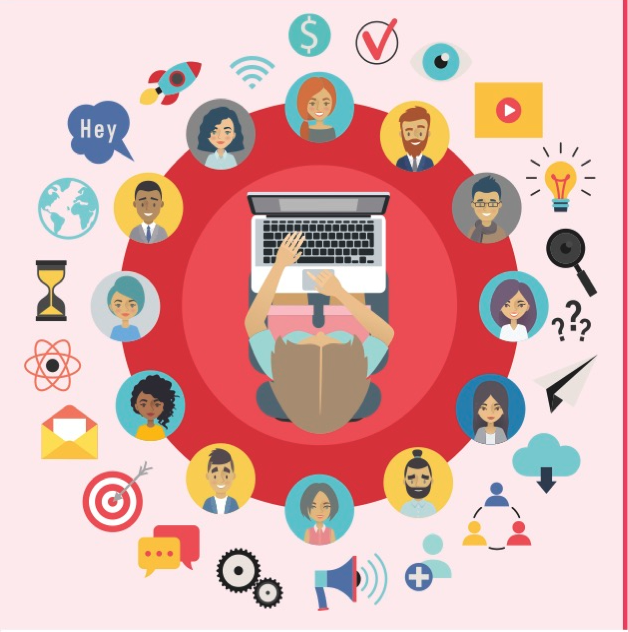 “Womenomics” has become a well-known term in Japan since Prime Minister Shinzo Abe made it one the main pillars of his government growth strategy in 2013. The point of Womenomics is to pull more women into the work force, primarily to boost the economy and make up for the decline in the nation’s working-age population, which is projected to shrink by about a third by 2060. Abe’s administration has proposed policies and interventions that aim to encourage more women to join the workforce, such as launching campaigns to eliminate long waiting lists for child-care programs and pressuring large companies to have at least one female executive.
“Womenomics” has become a well-known term in Japan since Prime Minister Shinzo Abe made it one the main pillars of his government growth strategy in 2013. The point of Womenomics is to pull more women into the work force, primarily to boost the economy and make up for the decline in the nation’s working-age population, which is projected to shrink by about a third by 2060. Abe’s administration has proposed policies and interventions that aim to encourage more women to join the workforce, such as launching campaigns to eliminate long waiting lists for child-care programs and pressuring large companies to have at least one female executive.
Under Abe, female participation in the workforce has indeed increased , but gender equity continues to be out of reach in the workplace, as women’s roles tend to be low in the office hierarchy and non-regular. Due to the gender gap among professional and technical workers in Japan, the latest global gender gap index has Japan ranked 111th out of 144 countries, a fall of ten places since 2015 and leaving Japan just behind Ethiopia and Nepal.
With such an embarrassing ranking, Japanese policymakers continue to think through the different types of policies that could draw more women into the workforce, especially in higher positions. Yet without considering the social-cultural factors that influence how women perceive and are affected by work in Japan, the success of Womenomics is doubtful.
In late 2015, Matsuri Takahashi, 24, who worked at Japan’s top advertisement agency, Dentsu Inc., killed herself because of the stress from extreme and persistent overtime of more than 100 hours a month. Unfortunately, this news was not surprising for many Japanese citizens. Dentsu is known for demanding long hours from its employees, and has a history of former employees killing themselves due to stress from overwork. Austere company principles, such as “don’t relinquish your work, even if you are killed,” do not help the situation.
Karoshi is often associated with men, as more men have died from overwork than women. However, according to Dr. Junko Kitanaka , a medical anthropologist from Keio University who has researched overwork suicide in Japan extensively, such views are a self-fulfilling prophecy. “The conceptualization of suicide seems more reserved for male workers and thus minimizes the importance and possible underreporting of depression in women or unemployed individuals,” Kitanaka writes. “Although Japanese male workers may be at most risk, they have also been the primary focus of suicide concern in Japan at the expense of other population groups.” While women in Japan might not be committing suicide from work as rampantly as men, they face other stresses and mental health problems, such as major depression and anxiety, due to work, which affect their ability to thrive and contribute to Japan’s economy.
Work life for many Japanese women is riddled with challenges. In 2015, 58 percent of women in Japan felt strong stress from work. Of course, some of these challenges may be similar to that of other countries, and the hurdles that working women face can depend heavily on variables such as age, marital status, socioeconomic status, the location, type, position and nature of their jobs, and the availability of social support. However, there has been research to show that gender inequality in the labor market is particularly acute in Japan , and may contribute to gender specific patterns in the prevalence of poor psychological health.
What could be the reason for the poor psychological health among some Japanese working women? One piece is the general work culture in Japan of long hours, significant overtime, compulsory socializing with superiors, and a stifling corporate hierarchy. However, working women in Japan face additional challenges that their male counterparts do not encounter.
Furthermore, working women in Japan who are in senior positions may suffer from more stress and poor mental health, according to Dr. Norito Kawakami, chair of Department of Mental Health in the School of Public Health at University of Tokyo. His view is that “women in higher positions in Japan face too many job demands, since men in the same position are generally expected to work longer and harder; also these women may suffer from lack of social support from colleagues (since many colleagues in similar positions are males) and family members (since family members expect that women take care of the children and family), which can hold the women back from meeting their job expectations.” Other researchers have suggested that women in higher positions in Japan may face additional stresses due to perceptions that they reached their position through “sexual charm,” rather than for skill and experience, which can be demoralizing and affect women’s mental health. Studies have further shown that these women may have greater mood and anxiety disorders due to the lack of rewards relative to their male peers, and those exposed to high job stress may have a high risk for stroke , while this association does not hold true for male counterparts.
If a working woman in Japan has one or more child, the mental well-being of the mother could get even more compromised. It is still a cultural norm that women in Japan are expected take care of the children and family, and husbands are exempt from these duties. Housework hours are very different between men and women. In one day, men on average do housework for about 30 minutes, in contrast to more than 3 hours for women in Japan. But even if husbands want to help and spend time with their families, they tend to be overworked and may not be able to find the time. A younger generation might not be the answer to changing norms. Even young, educated males like, Yuta Tanaka, 21, a junior from Sophia University, concede that whether a woman works or not should depend on the husband’s workload.
For some women, non-regular work such as part-time jobs, temporary employment, and contract work may be attractive because of the potential for flexibility. In 1990, non-regular employees in Japan accounted for 20 percent of the workforce, but in 2014 the figure increased to about 37 percent, which mostly includes women. Kana Watanabe, 46, a former employee of NHK, Japan’s national public broadcasting organization, who quit her job when she was pregnant with her first child, is now a part-time bus attendant. She likes the flexibility of her current job as it gives her time to take care of her three children, but she noted that she gets stressed and anxious from not knowing what her job responsibilities will be and the unpredictability of her work. Non-regular workers in Japan indeed may be at risk for additional psychological distress due to job insecurity, lack of benefits, poor wages, underutilized skills, and low recognition and rewards.
Whether regular or non-regular work, the association between mental health issues and work among Japanese women can be intensified if their husbands are stressed from work. A study found that the mental health of wives in Japan may be influenced by not only their own work-life balance, but also their husbands’ work-life balance. In other words, Japanese women are at risk of becoming psychologically affected by their husband’s work-life conflict induced stress, because they feel guilty when their husbands come home stressed, as the women assume that they are responsible for the wellbeing of the family. Yuka Nakazawa, 29, a new mother can relate to this. When her husband comes back home late from work and disappointed that he cannot play with the baby, which is almost every day, she says, “I get anxious and angry. I stay up at night thinking about ways to help my husband.”
This range of challenges faced by working women in Japan begs the question of how their happiness compares to housewives and non-working women. Many Western studies suggest that working women are happier than housewives, but is this the case in Japan? This is not to say that Japanese housewives are not at risk for mental health problems, as some may develop symptoms due to underutilized skills and underappreciation, among other factors. However, one study found that full time housewives in Japan were less anxious about and less dissatisfied with their health, and that they had healthier lifestyles than working women in Japan. Similarly, a survey by Meiji Yasuda Institute for Life and Wellness in 2011 showed that Japanese women who are housewives are happier than those who are employed.
Thus it makes sense that many women in Japan, despite their education, do not want to work or do not get excited about working. This poses a serious threat to Womenomics. In 2013, the Ministry of Health, Labor and Welfare polled 3,000 Japanese women aged 15-39, and found that one in three of unmarried women wanted to become a full-time housewife.
And for those who do want to work, like some college-educated women who were interviewed for this piece, they desperately look for companies that have policies that promote gender equality and work-life balance, such as free daycare and both maternity and paternity leave. However, these young women are also aware that many companies try to attract women by touting such benefits even if they are not widely used, which is often the case. As a result, some women look into working at international companies, or companies that hire westerners. Moe Miyazaki, 28, an English teacher trainer at a daycare in Tokyo, says that while she gets annoyed that lesser-qualified Westerners at her workplace get paid more than she does, she feels like they hold the company accountable to policies that uphold gender equality, which makes all the difference.
While the Japan government’s policies, which address one-off fixes that policymakers consider vital for women’s participation in the workforce, are a step in the right direction, more can be done. Policies need to consider the social-cultural determinants that affect the equity, health, and happiness of women in relation to work, and must understand what drives women in and out of the workplace before the interventions can be truly effective. For example, increasing the number of daycares will not necessarily make working women happy if they continue to experience harassment and not get appropriate rewards, promotions, and wages. Likewise, increasing mental health activities in the workplace that primarily cater to men’s needs rather than the needs of both men and women, as it is in most places in Japan today, will not allow women to succeed in the workplace.
The solution to developing a workforce of thriving women in Japan is multifaceted and complex, but neglecting the root of these socio-cultural drivers that influence the way women work in Japan will affect Japan’s economy and society into the foreseeable future.
© Source: http://thediplomat.com/2017/01/whats-ailing-womenomics/
All rights are reserved and belongs to a source media.
 Sechs Jahre Haft wegen des Messerangriffs auf einen Polizisten — so lautet das Urteil des Oberlandesgerichts Celle für Safia S.. Erstmals wurde mit der 16-Jährigen eine IS-Sympathisantin wegen einer Terrorattacke zu Haft verurteilt.
Sechs Jahre Haft wegen des Messerangriffs auf einen Polizisten — so lautet das Urteil des Oberlandesgerichts Celle für Safia S.. Erstmals wurde mit der 16-Jährigen eine IS-Sympathisantin wegen einer Terrorattacke zu Haft verurteilt.

 SALT LAKE CITY — For the first time since 2011, the Utah Jazz have an All-Star — only one, though.
SALT LAKE CITY — For the first time since 2011, the Utah Jazz have an All-Star — only one, though. 
 President Donald Trump is embracing the idea of Guantanamo Bay as a jail for terror suspects, a repudiation of the Obama administration’s longtime push to prosecute captured militants in the U. S. court system.
President Donald Trump is embracing the idea of Guantanamo Bay as a jail for terror suspects, a repudiation of the Obama administration’s longtime push to prosecute captured militants in the U. S. court system. 
 Jan. 26 (UPI) — The man who allegedly killed five people in a shooting spree at Florida’s Fort Lauderdale-Hollywood International Airport earlier this month was indicted on nearly two dozen federal charges Thursday.
Jan. 26 (UPI) — The man who allegedly killed five people in a shooting spree at Florida’s Fort Lauderdale-Hollywood International Airport earlier this month was indicted on nearly two dozen federal charges Thursday. 
 Sony is a huge brand, and not just for smartphones. Purveyors of the Walkman and the best TVs in the world, it has in recent years fallen down the pecking order when it comes to the best smartphones. Its Xperia Z3 was debatably the pinnacle of its vision of flagship phones with full waterproofing and two-day battery – but that was in 2014.
Sony is a huge brand, and not just for smartphones. Purveyors of the Walkman and the best TVs in the world, it has in recent years fallen down the pecking order when it comes to the best smartphones. Its Xperia Z3 was debatably the pinnacle of its vision of flagship phones with full waterproofing and two-day battery – but that was in 2014. 
 As the proliferation of smartphones and IoT devices continues, this year’s Data Privacy Day serves as a good reminder for organizations to discuss their own privacy awareness, how to safeguard their data, and how to empower business leaders and teams to take better actions when online.
As the proliferation of smartphones and IoT devices continues, this year’s Data Privacy Day serves as a good reminder for organizations to discuss their own privacy awareness, how to safeguard their data, and how to empower business leaders and teams to take better actions when online. 
 “Womenomics” has become a well-known term in Japan since Prime Minister Shinzo Abe made it one the main pillars of his government growth strategy in 2013. The point of Womenomics is to pull more women into the work force, primarily to boost the economy and make up for the decline in the nation’s working-age population, which is projected to shrink by about a third by 2060. Abe’s administration has proposed policies and interventions that aim to encourage more women to join the workforce, such as launching campaigns to eliminate long waiting lists for child-care programs and pressuring large companies to have at least one female executive.
“Womenomics” has become a well-known term in Japan since Prime Minister Shinzo Abe made it one the main pillars of his government growth strategy in 2013. The point of Womenomics is to pull more women into the work force, primarily to boost the economy and make up for the decline in the nation’s working-age population, which is projected to shrink by about a third by 2060. Abe’s administration has proposed policies and interventions that aim to encourage more women to join the workforce, such as launching campaigns to eliminate long waiting lists for child-care programs and pressuring large companies to have at least one female executive. 
 CHICAGO (AP) — A federal jury has returned a not guilty verdict for a Chicago woman accused of supplying her teenage cousin with a gun authorities say the girl used to kill a 14-year-old rival after a Facebook feud over a boy.
CHICAGO (AP) — A federal jury has returned a not guilty verdict for a Chicago woman accused of supplying her teenage cousin with a gun authorities say the girl used to kill a 14-year-old rival after a Facebook feud over a boy. 
 Cape Town — Cheetahs coach, Franco Smith, has named his lineup to face the Stormers in a Super Rugby pre-season friendly encounter to be played in Harare on Saturday, January 28.
Cape Town — Cheetahs coach, Franco Smith, has named his lineup to face the Stormers in a Super Rugby pre-season friendly encounter to be played in Harare on Saturday, January 28. 
 Athen (dpa) — Acht türkische Soldaten, die in Griechenland Asyl beantragt haben, dürfen nach einem Urteil des höchsten griechischen Gerichtshofes nicht an ihr Heimatland ausgeliefert werden.
Athen (dpa) — Acht türkische Soldaten, die in Griechenland Asyl beantragt haben, dürfen nach einem Urteil des höchsten griechischen Gerichtshofes nicht an ihr Heimatland ausgeliefert werden. 

